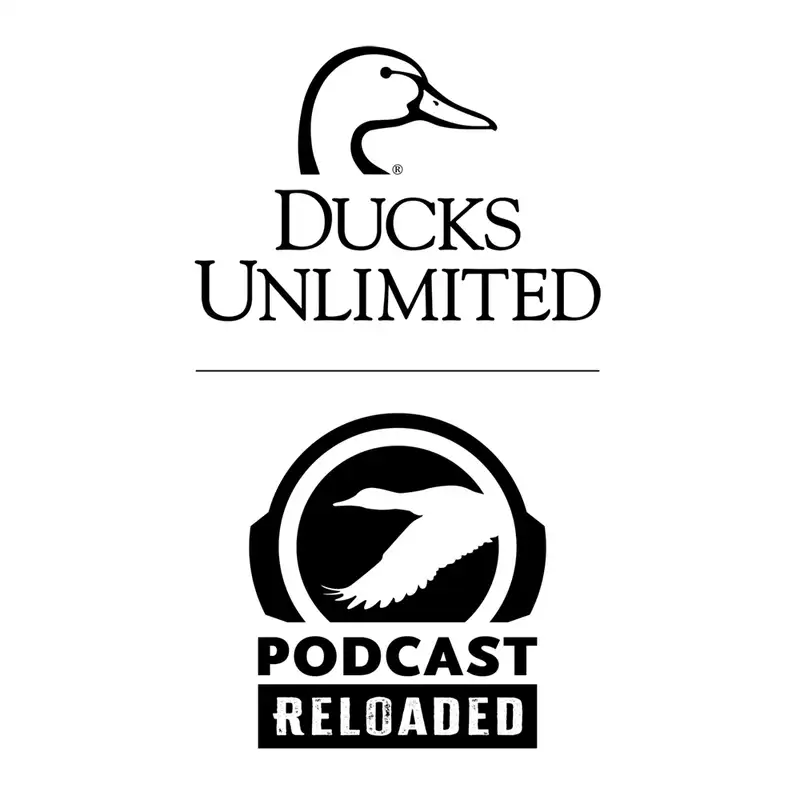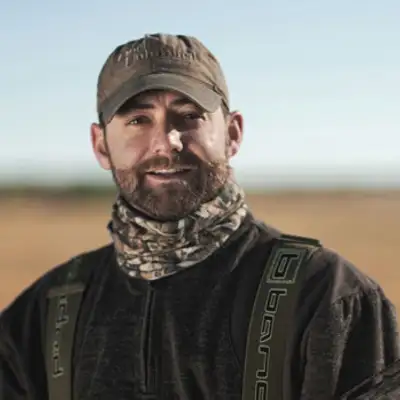RELOADED EP23 | Two Sides Of A Drought
Welcome to the Ducks Unlimited podcast, Reloaded. We bring you the best of our past episodes. Whether you're a seasoned waterfowler or curious about conservation, this series is for you. Over the years, we've had incredible guests and discussions about everything from wetland conservation to the latest waterfowl research and hunting strategies. In Reloaded, we're revisiting those conversations to keep the passion alive and the mission strong.
VO:So sit back, relax, and enjoy this reload.
Mike Brasher:Today, I've got doctor Mike Brasher in the studio here with me, and today, we're gonna talk about drought. And when you hear people talk about drought, people start kinda cringing a little bit, like, oh, no. Drought. You know, drought across the prairies. And and one thing that brought this up is this we've already done the shows for the waterfowl survey.
Mike Brasher:We've discussed, you know, pond counts, how they are down, And there there is, you know, drought throughout portions of the Canadian Prairies this year. And on the flip side of that, you know, you got South Dakota who's got more water right now than they know what to do with. But what I wanted you to come on, Mike, is and discuss is the benefits of drought and how that impacts. It's all a cycle. And so so what are the benefits of a drought on a wetland?
Chris Jennings:Yeah. I I think an important thing to take away from this is to to really realize that it is, as you mentioned, the cycle. These droughts come and go. Mhmm. And and that's actually not always a bad thing.
Chris Jennings:We need droughts occasionally to to recapture the productivity of these wetlands. So you mentioned that South Dakota has more has more water right now than it may have ever had.
Mike Brasher:Oh, yeah.
Chris Jennings:And and while that's great right now, we don't want that the ideal situation would not be to keep that in the current situation for three or four years, you know? And because what happens is as those when those those basins are wet, and we'll have to get a little bit technical here, what happens is in the presence of that water, there's not a lot of oxygen getting to some of the organic material in that in that wetland. So the longer the water stays on, the more that wetland and all the the vegetation and animals and all the organic material in that in that system, it it exists in the absence of oxygen. And so the consequence of the absence of oxygen is that that organic material, those plants, when they die, and plants are made up of various nutrients and carbon and all that, that's that's sort of the base of the food chain is those nutrients. Those nutrients are more tied up.
Chris Jennings:In the absence of oxygen, they can't decompose as readily, and so when that's tied up, it's not available for reuse by the food chain. And so what happens when you have drought or even just some periodic drying, it doesn't have to be an intense drought, but you pull that that when that water comes off, those that dead vegetation, any other kind of organic material that's in that in that system gets exposed to oxygen and the bacteria and the fungi, the key decomposers, if you will, they really they really take off and they start converting that organic material back into its native nutrients, its carbon, its nitrogen, and those those nutrients which are then returned to usable forms by plants and other primary producers and the things that really fuel the food chain. So it's That's
Mike Brasher:when the invertebrates come in.
Chris Jennings:That's right. That's right. And so then that feeds on up the food chain. So it's fundamentally drought or the drying of these wetlands, it's fundamentally necessary to allow the decomposition of the of the dead plants and any other organic material that may be in there and return those to to usable forms of of nutrients. And so that's that's that's fundamentally what's driving the the idea of drought being a good thing.
Mike Brasher:How does this extend to, like, the management of seasonal, like, someone managing a wetland? Is it the same process?
Chris Jennings:It's the exact same concept. And if we're talking about sort of the annual management of of wetlands for the production of food or the production of resources for for waterfowl, it's it's the exact same concept. You have the water on there, let's say, in fall and and winter, and then you draw that water off in the spring, you're exposing that that dead vegetation to to oxygen, and you're allowing bacteria, the fungi, to decompose that that vegetation at a faster rate and return it to the system on an annual basis. Otherwise, if you keep the water on there, again, you're gonna have some you're gonna create anaerobic conditions, and and there are some species, some plant species that can proliferate in those kind of anaerobic environments, and and those type that type of wetland management is common in many places, and it's very valuable in many places. But you can usually, depending on where you are, and a lot of this varies just based on climate and how long the growing season is, but you can get away with holding water on wetlands for one or for two or three years in many cases, you'll be fine.
Chris Jennings:You'll create some very diverse and very valuable hemimarsh conditions. You have
Mike Brasher:a lot of
Chris Jennings:cattail, bulrush grow up, which are all valuable in themselves, submerged aquatic vegetation, whether it be pondweeds or any other kind of floating or submerged aquatics which produce lots of good food, those can be really, really valuable.
Mike Brasher:Which attracted a completely different type of species of ducks. They do. You're talking puddlers to divers.
Chris Jennings:They do, and it's very much needed. Very much needed. We need a diversity of wetland habitat types. Just be clear about that. We don't need everything to be drained in the summer, you know,
Mike Brasher:and Yeah.
Chris Jennings:Drawn down for this type of intensive management. We need a diversity of wetland habitats to support waterfowl and and other other species that benefit from wetlands. Yeah, it's fundamentally the same thing. It's the manner in which the presence of water and the length of time that the water is on a given area and how that affects that food chain and the plant communities. And eventually, those those plant communities will they'll they'll lose their productivity.
Mike Brasher:Yeah. And so really what it sounds like is that just it's a happy medium. You know, you don't want to have water on it for too long, but you also don't want it to be dry for too long.
Chris Jennings:Oh, that's right.
Mike Brasher:What are some of the impacts of whether being dry for too long? Well,
Chris Jennings:it's from a waterfront perspective, it's there's no water there and and
Mike Brasher:Makes sense.
Chris Jennings:And it's it's not usable. It's not does not exist as usable habitat, if you will. It's not habitat. If there's not water on, it's not producing food. You know?
Chris Jennings:So that's that's the biggest consequence of it being dry for too long is it's no longer habitat for waterfowl or any other wetland dependent species.
Mike Brasher:Okay. Well, cool. Well, hey, Mike. I appreciate you coming on. I hope everyone learned a little bit about drought today.
Mike Brasher:And just hearing the word drought, it's not something to fear unless it's, you know, a very prolonged drought. But also on the flip side of that, you know, you've got your flooding. Not a huge deal unless it's something that's prolonged as well. And what what I think watercow managers are looking for here for suitable habitat is just a happy medium.
Chris Jennings:I think that's right.
Mike Brasher:Cool. I appreciate it.
VO:Thank you for listening to the DU podcast, sponsored by Purina Pro Plan, the official performance dog food of Ducks Unlimited. Purina Pro Plan, always advancing. Also proudly sponsored by Bird Dog Whiskey and Cocktails. Whether you're winding down with your best friend or celebrating with your favorite crew, Bird Dog brings award winning flavor to every moment. Enjoy responsibly.
VO:Be sure to rate, review, and subscribe to the show and visit ducks.org/dupodcast. Opinions expressed by guests do not necessarily reflect those of Ducks Unlimited. Until next time, stay tuned to the Ducks.
Creators and Guests


